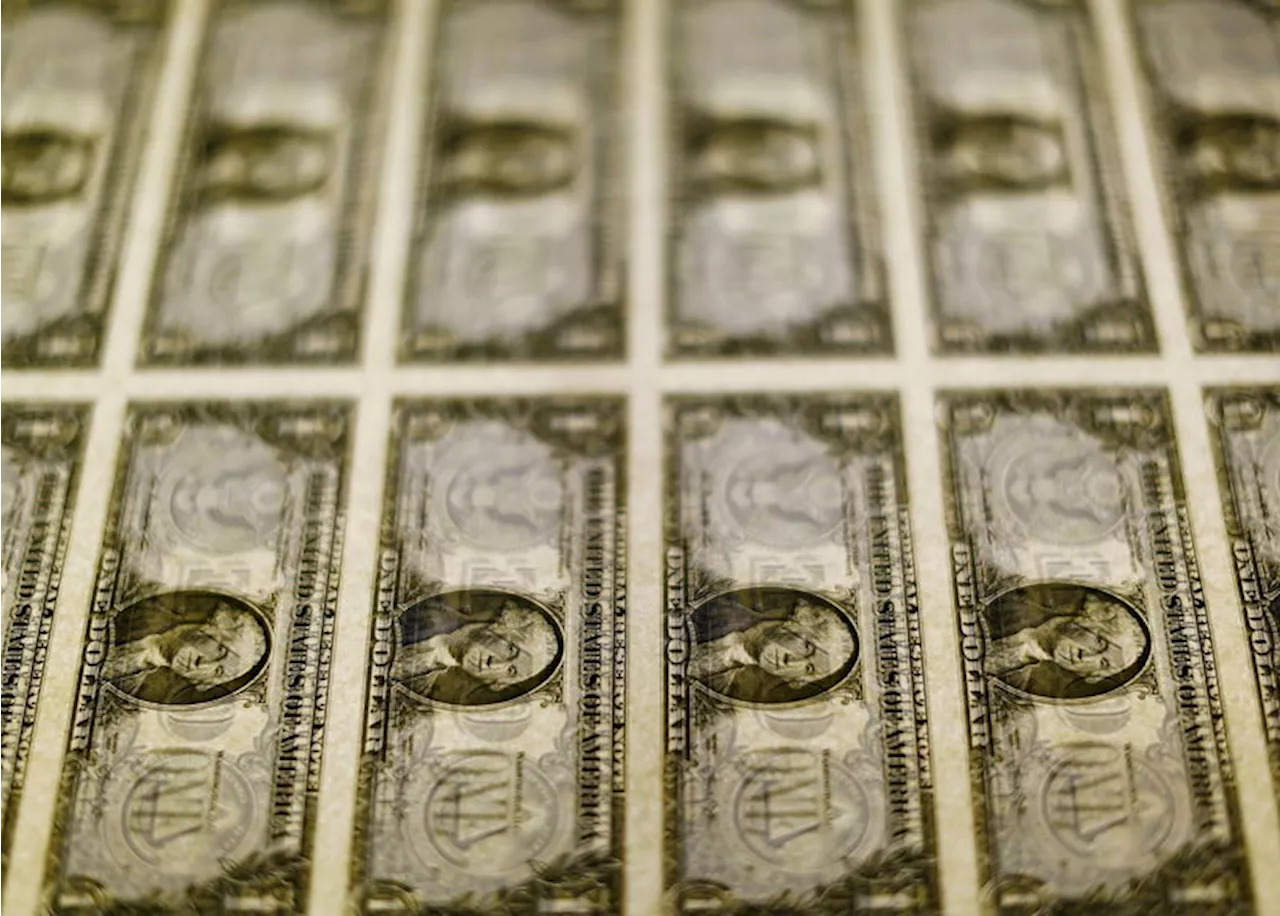Asian currencies traded with limited movement as investors weighed the potential for less strict trade tariffs under incoming U.S. President Donald Trump. The dollar stabilized after recent losses, fueled by speculation about Trump's tariff plans. The Chinese yuan remained under pressure, hitting its weakest level in 17 years, due to new U.S. restrictions on Chinese companies and rising trade tensions.
Most Asian currencies traded in a narrow range on Tuesday as investors assessed the potential for less stringent trade tariffs under incoming U.S. President Donald Trump , while the dollar stabilized after recent losses. The Chinese yuan continued to underperform its counterparts after hitting a 17-year low on Monday. Although it recovered slightly, it remained vulnerable, pressured further by new U.S. restrictions on Chinese companies.
The dollar also recovered a significant portion of its overnight decline following a report that fueled speculation about the specifics of Trump's tariff plans. The greenback recouped most of its Monday losses after Trump refuted a Washington Post article stating his administration would implement less severe trade tariffs than initially proposed. Trump, who is scheduled to take office in less than two weeks, has pledged to impose hefty import tariffs on China and other major economies, raising concerns about a resurgence of global trade wars. The prospect of increased tariffs has been a key factor driving the dollar's recent surge, alongside growing confidence that the Federal Reserve will slow its interest rate cuts in 2025. Hawkish comments from Fed officials over the weekend reinforced this view. The Chinese yuan was the worst-performing Asian currency this week, having touched its weakest level in 17 years on Monday. The yuan is facing additional pressure from the U.S. government adding Chinese companies with ties to the military to a blacklist, threatening to further strain relations between the world's two largest economies. Beijing is anticipated to implement even more stimulus measures in response to a renewed trade war with the U.S
TRADE WAR ASIAN CURRENCIES US DOLLAR DONALD TRUMP CHINA
United States Latest News, United States Headlines
Similar News:You can also read news stories similar to this one that we have collected from other news sources.
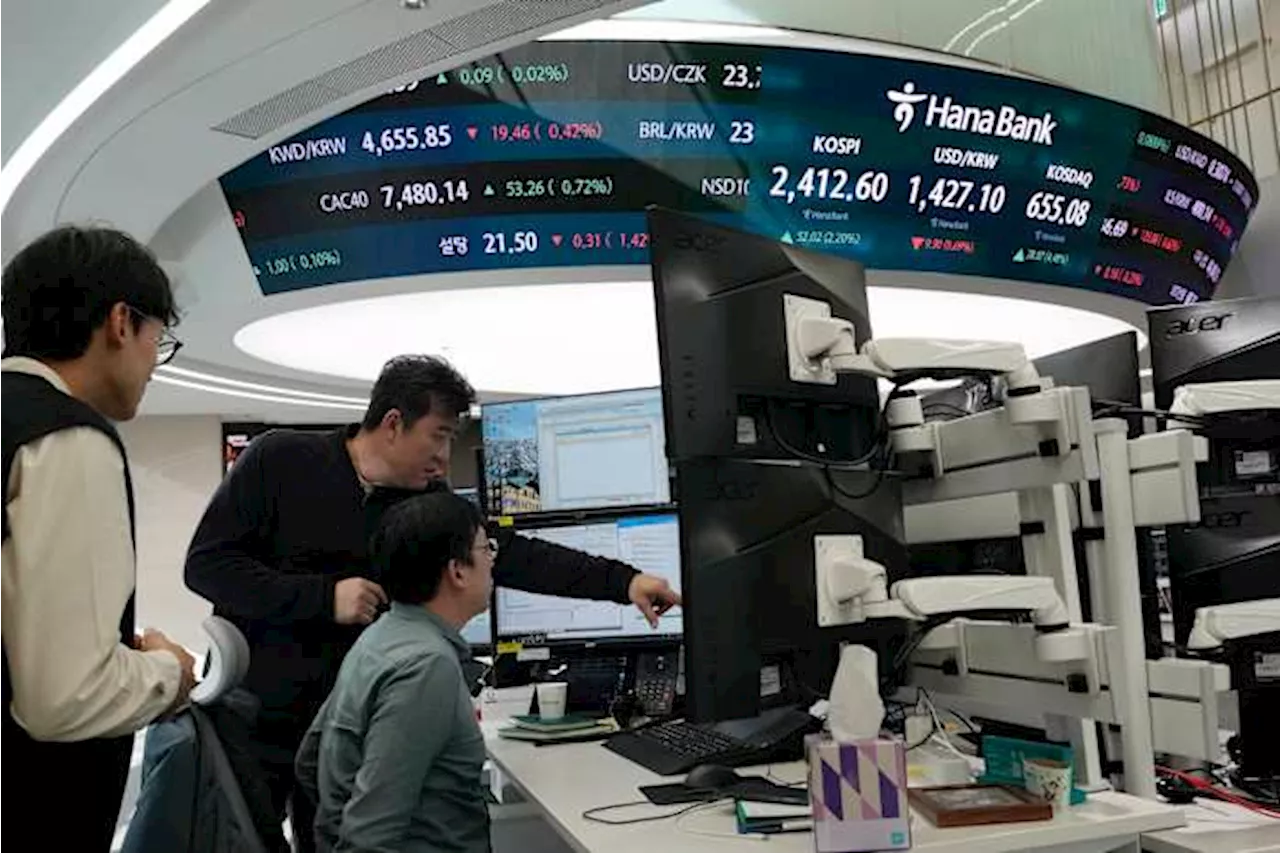 Stock market today: Asian shares mostly higher as Chinese stocks are lifted by latest stimulusShares are mostly higher in Asia after a slide for market superstar Nvidia helped pull U.S. stock indexes below their latest records.
Stock market today: Asian shares mostly higher as Chinese stocks are lifted by latest stimulusShares are mostly higher in Asia after a slide for market superstar Nvidia helped pull U.S. stock indexes below their latest records.
Read more »
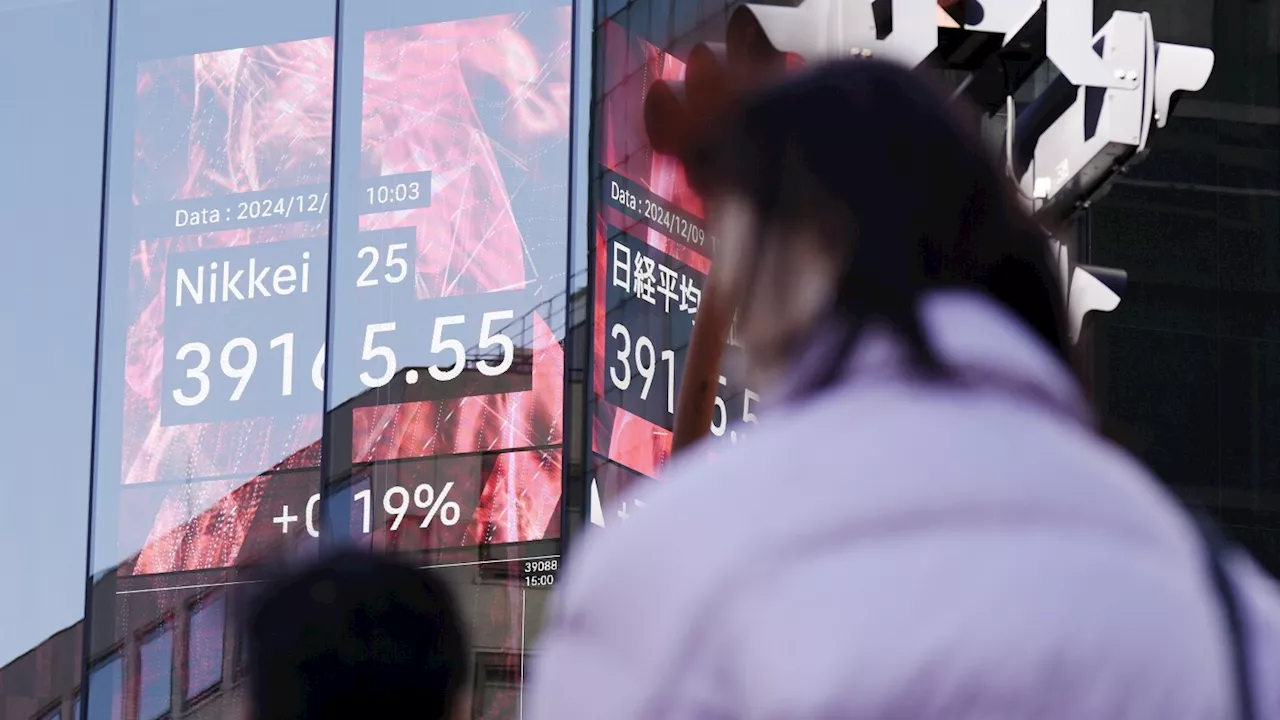 Stock market today: Asian shares mostly higher as Chinese stocks are lifted by latest stimulusShares are mostly higher in Asia after a slide for market superstar Nvidia helped pull U.S. stock indexes below their latest records. Chinese shares jumped after top leaders promised a shift toward more support for the sluggish economy. U.S. futures were little changed. On Monday, the S&P 500 fell 0.6% and the Dow Jones Industrial Average fell 0.
Stock market today: Asian shares mostly higher as Chinese stocks are lifted by latest stimulusShares are mostly higher in Asia after a slide for market superstar Nvidia helped pull U.S. stock indexes below their latest records. Chinese shares jumped after top leaders promised a shift toward more support for the sluggish economy. U.S. futures were little changed. On Monday, the S&P 500 fell 0.6% and the Dow Jones Industrial Average fell 0.
Read more »
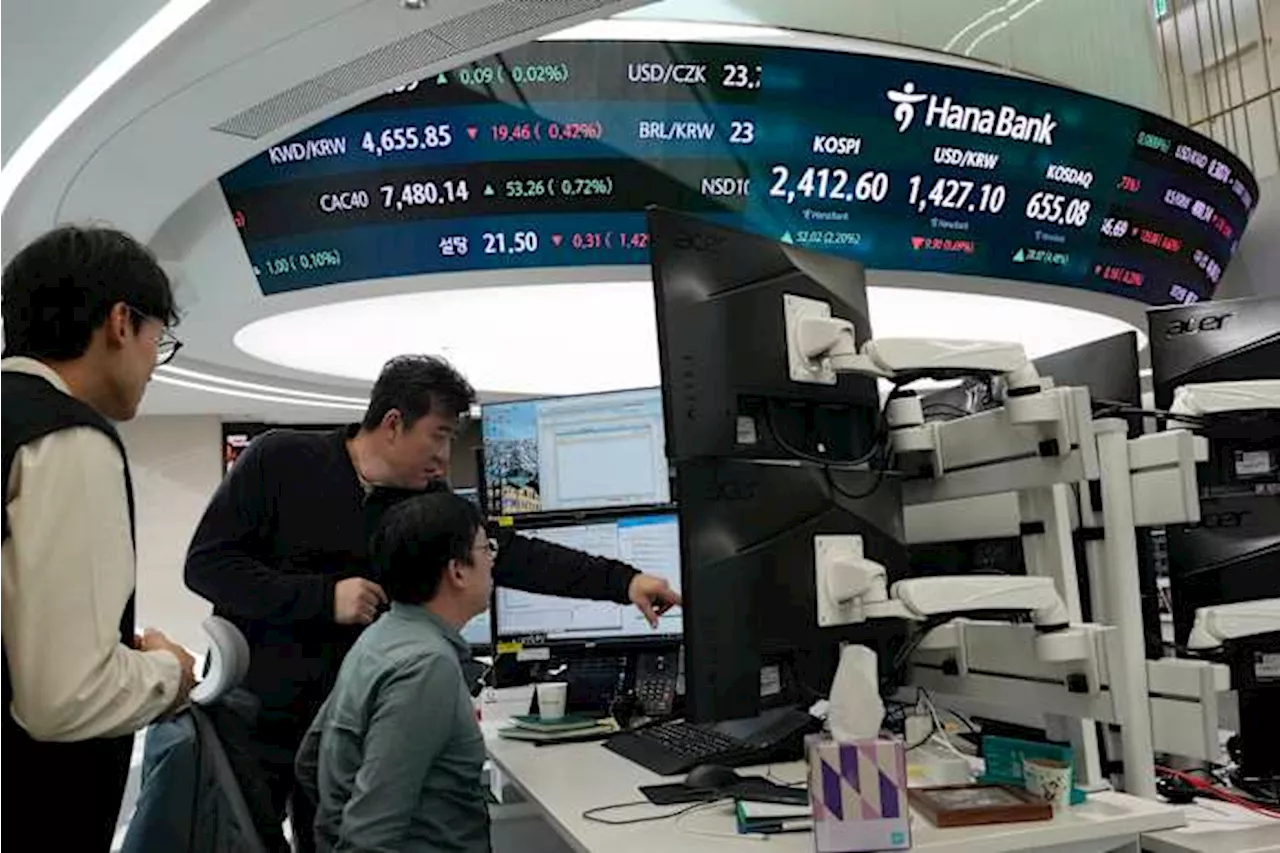 Stock market today: Asian shares mostly higher as Chinese stocks are lifted by latest stimulusShares are mostly higher in Asia after a slide for market superstar Nvidia helped pull U.S. stock indexes below their latest records.
Stock market today: Asian shares mostly higher as Chinese stocks are lifted by latest stimulusShares are mostly higher in Asia after a slide for market superstar Nvidia helped pull U.S. stock indexes below their latest records.
Read more »
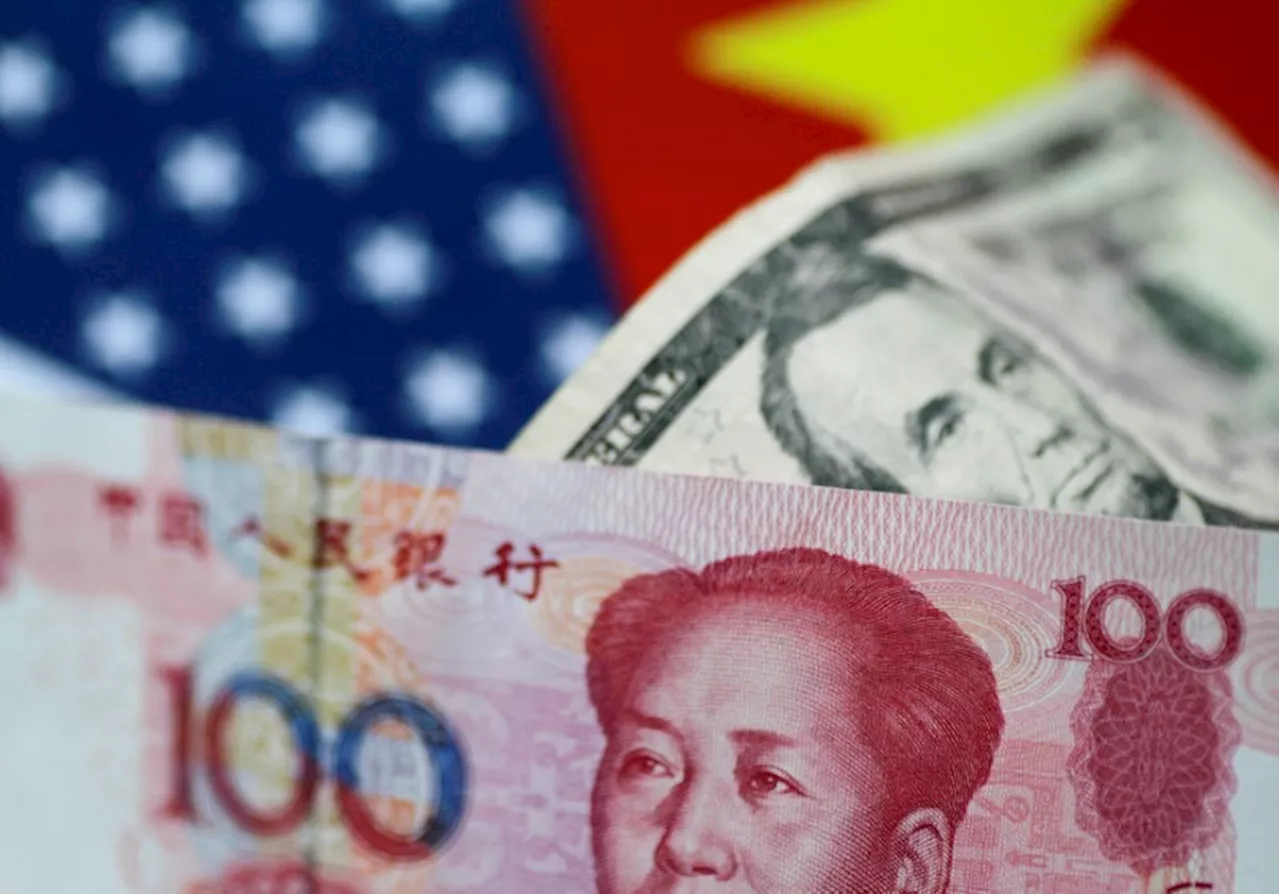 Asian Currencies Weaken Amid Strong Dollar and Slowing Chinese GrowthMost Asian currencies fell against the US dollar on Tuesday, driven by a strong dollar and concerns over slowing Chinese economic growth.
Asian Currencies Weaken Amid Strong Dollar and Slowing Chinese GrowthMost Asian currencies fell against the US dollar on Tuesday, driven by a strong dollar and concerns over slowing Chinese economic growth.
Read more »
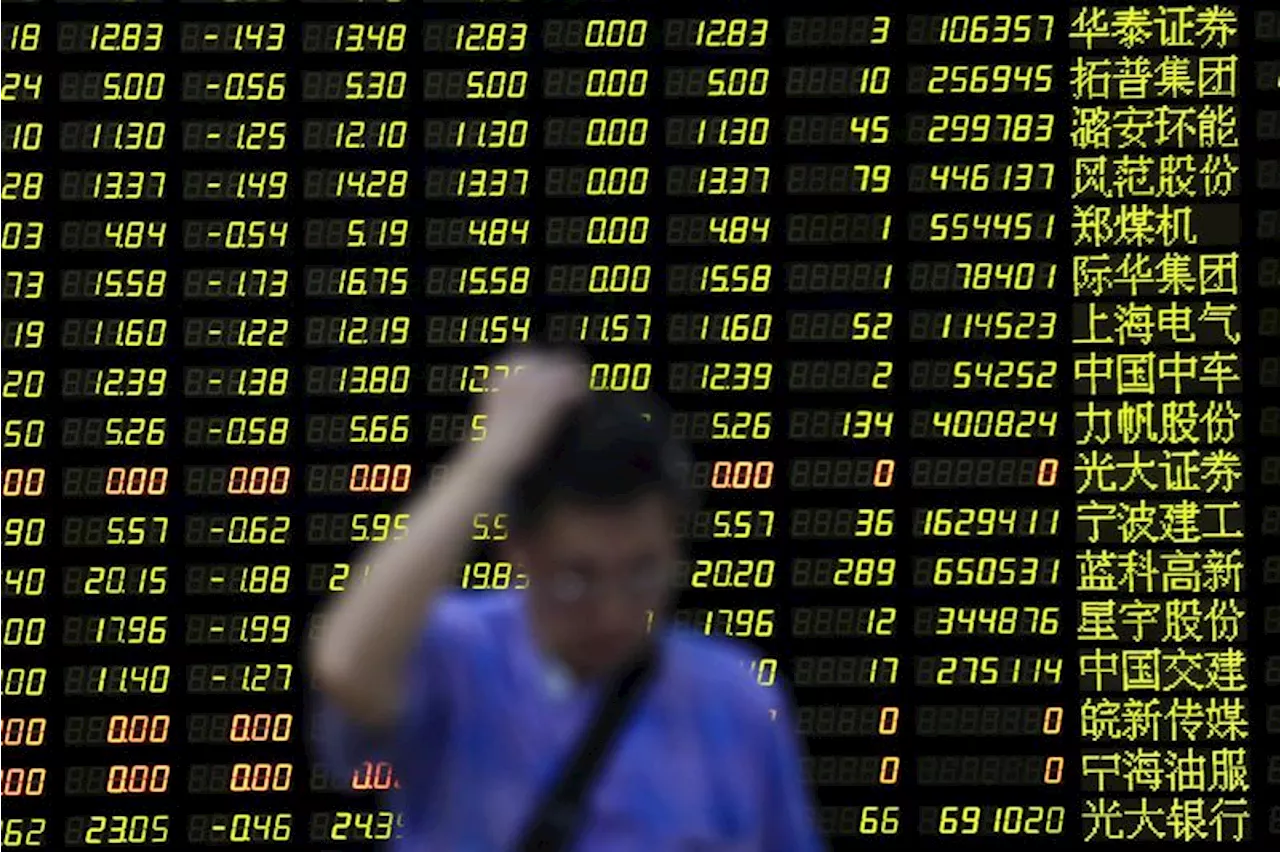 Asian Stocks Rise as Tech Rebounds, Chinese Markets Lag on U.S. BlacklistMost Asian stocks advanced on Tuesday, following gains in U.S. technology stocks, although Chinese markets underperformed after two major tech companies were added to a U.S. blacklist. Regional markets were buoyed by a strong overnight session on Wall Street, with tech stocks rebounding from a sluggish start to the year. NVIDIA Corporation reached a record high, anticipating CEO Jensen Huang's address at CES. Despite this, most Asian markets remained subdued due to persistent concerns about high U.S. interest rates. Tech stocks surged, tracking their U.S. counterparts, fueled by AI hype and bargain buying after December's losses. Tencent and CATL were added to a U.S. blacklist linked to the Chinese military, raising concerns about strained trade relations between the two largest economies, further aggravated by incoming U.S. President Donald Trump's trade tariff plans.
Asian Stocks Rise as Tech Rebounds, Chinese Markets Lag on U.S. BlacklistMost Asian stocks advanced on Tuesday, following gains in U.S. technology stocks, although Chinese markets underperformed after two major tech companies were added to a U.S. blacklist. Regional markets were buoyed by a strong overnight session on Wall Street, with tech stocks rebounding from a sluggish start to the year. NVIDIA Corporation reached a record high, anticipating CEO Jensen Huang's address at CES. Despite this, most Asian markets remained subdued due to persistent concerns about high U.S. interest rates. Tech stocks surged, tracking their U.S. counterparts, fueled by AI hype and bargain buying after December's losses. Tencent and CATL were added to a U.S. blacklist linked to the Chinese military, raising concerns about strained trade relations between the two largest economies, further aggravated by incoming U.S. President Donald Trump's trade tariff plans.
Read more »
 Exclusive-Chinese authorities are considering a weaker yuan as Trump trade risks loom, sources sayExclusive-Chinese authorities are considering a weaker yuan as Trump trade risks loom, sources say
Exclusive-Chinese authorities are considering a weaker yuan as Trump trade risks loom, sources sayExclusive-Chinese authorities are considering a weaker yuan as Trump trade risks loom, sources say
Read more »
